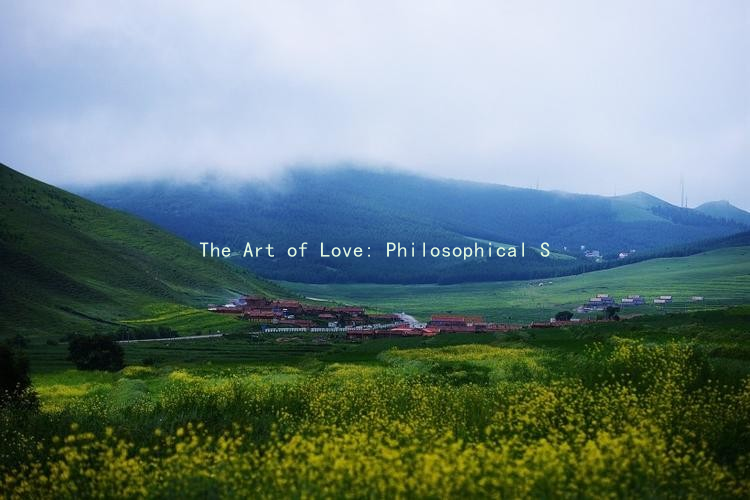The Art of Love: Philosophical Schools of Thought in Modern Relationships
The Art of Love: Philosophical Schools of Thought in Modern Relationships
In the ever-evolving landscape of modern relationships, the pursuit of love and companionship is shaped not only by personal experiences but also by philosophical schools of thought that influence our understanding of connection, intimacy, and commitment. As we navigate dating, courtship, and long-term partnerships, it becomes imperative to explore different philosophical approaches that can enrich our romantic interactions.
One predominant school of thought is Existentialism, which emphasizes individual choice and the inherent freedom of establishing one’s own values. In the realm of relationships, this philosophy calls for authenticity and personal responsibility. Engaging in existentialist love means recognizing that individual desires and existences shape the partnership. It encourages open communication, allowing partners to articulate their needs and expectations without fear of judgment. For example, discussing relationship boundaries openly reflects an existentialist view, as it acknowledges personal agency and fosters a deeper understanding between partners.
Contrasting with existentialism, the Stoic philosophy advocates for emotional resilience and rationality. Stoicism teaches the importance of recognizing and managing emotions instead of being ruled by them. In relationships, this can translate to maintaining composure during conflicts. Rather than reacting impulsively to disagreements, a Stoic approach would involve taking a step back, reflecting on the situation, and responding thoughtfully. This practice can cultivate a healthier dynamic, as it encourages partners to address issues maturely and constructively, ultimately leading to greater harmony.

The Romanticism movement, on the other hand, celebrates the idealization of love and passion. Romantic philosophy encourages individuals to embrace the emotional highs and lows of relationships, allowing for deep connections and a profound understanding of one another. However, while passion is vital, it is essential not to lose sight of practical considerations. Navigating the waters of modern relationships successfully often requires balancing the enchanting aspects of romance with responsibilities and realistic expectations. For instance, while spontaneous date nights can ignite the flame of passion, shared responsibilities, and chores can ground the relationship, making it sustainable in the long term.
Utilitarianism, another conceptual lens, promotes the idea of maximizing happiness for the greatest number. In a romantic context, this philosophy can guide partners to consider each other’s needs and how their actions impact the overall satisfaction of the relationship. Utilizing a utilitarian approach means actively working towards mutual fulfillment, such as planning activities that both partners enjoy or negotiating compromises that enhance shared happiness. This strategic collaboration fosters not just individual contentment but also strengthens the bond by highlighting the importance of partnership in pursuing a collective joy.
Lastly, the Feminist perspective on relationships emphasizes equality and mutual respect. In modern dating, adopting a feminist viewpoint means advocating for healthy dynamics where both partners have equal voices and representation. It’s crucial to challenge traditional gender roles and foster an environment where both individuals can express themselves freely and confidently. This approach encourages conversations about power dynamics, social expectations, and personal aspirations within the relationship, leading to a more equitable partnership.
In conclusion, navigating modern relationships through the lens of various philosophical schools allows individuals to develop richer, more meaningful connections. By blending the principles of existentialism, Stoicism, Romanticism, Utilitarianism, and Feminism, partners can create a robust foundation for their love. This exploration not only enhances personal growth but also promotes a deeper understanding of one another, ultimately leading to fulfilling and enduring partnerships. Whether you are embarking on a new romance or nurturing a long-term relationship, these philosophical insights offer valuable guidance on the art of love.





